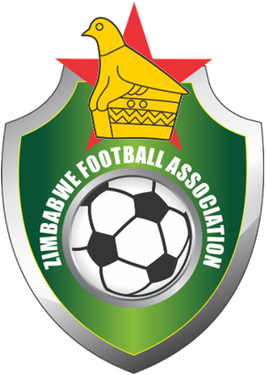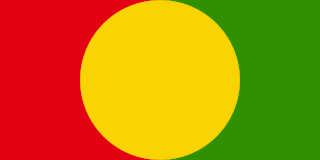Related Research Articles

Elías Ricardo Figueroa Brander is a Chilean former footballer who played for several clubs during his long career, notably his hometown club Santiago Wanderers, Brazilian club Internacional and Uruguayan club Peñarol. He also represented Chile 47 times, appearing in three FIFA World Cups, in 1966, 1974, and 1982.

The Zimbabwe national football team represents Zimbabwe in men's international football and is controlled by the Zimbabwe Football Association (ZIFA), formerly known as the Football Association of Rhodesia. The team has never qualified for the FIFA World Cup finals, but has qualified for the Africa Cup of Nations five times. Zimbabwe has also won the COSAFA Cup a record six times. The team represents both FIFA and Confederation of African Football (CAF).

The Ethiopia national football team, nicknamed Walia, after the Walia ibex, represents Ethiopia in men's international football and is controlled by the Ethiopian Football Federation, the governing body for football in Ethiopia. The team has been representing Ethiopia in regional, continental, and international competitions since its founding in 1943. The Walias play their home games at Addis Ababa Stadium located in the capital city of Addis Ababa. They are currently ranked 150th in the world according to the FIFA World Rankings and 44th in CAF.

The Rwanda national football team represents Rwanda in international football and is controlled by the Rwandese Association Football Federation, the governing body of football in Rwanda, and competes as a member of the Confederation of African Football (CAF), as well as the Council for East and Central Africa Football Associations (CECAFA), a CAF sub-confederation that governs football in East and Central Africa. The team bears the nickname Amavubi, and primarily plays its home games at the Stade Amahoro in Kigali, the nation's capital. They have never qualified for a World Cup finals, and reached their only Africa Cup of Nations in 2004.

The Democratic Forces for the Liberation of Rwanda is an armed rebel group active in the eastern Democratic Republic of the Congo. As an ethnic Hutu group opposed to the ethnic Tutsi influence, the FDLR is one of the last factions of Rwandan rebels active in the Congo. It was founded through an amalgamation of other groups of Rwandan refugees in September 2000, including the former Army for the Liberation of Rwanda (ALiR), under the leadership of Paul Rwarakabije. It was active during the latter phases of the Second Congo War and the subsequent insurgencies in Kivu.
Ratomir Dujković is a Serbian football manager and a former player.
The Union of Congolese Patriots is a political and militia group in Ituri, northeastern Democratic Republic of the Congo, formed towards the end of the Second Congo War. It was founded by Thomas Lubanga in 2001 and was one of six such groups that sprung up in the mineral-rich Ituri region on the border with Uganda in the Ituri conflict. The UPC supported and was primarily composed of the Hema ethnic group.

Carlos Humberto Caszely Garrido is a Chilean former footballer, nicknamed "Rey del metro cuadrado", who played as a forward.
Saïd Abed Makasi is a former professional footballer who played as a striker. Born in Zaire, he played for the Rwanda national team at international level.
Bosco Ntaganda is a convicted war criminal and the former military chief of staff of the National Congress for the Defense of the People (CNDP), an armed militia group operating in the North Kivu province of the Democratic Republic of the Congo (DRC). He is a former member of the Rwandan Patriotic Army and allegedly a former Deputy Chief of the General Staff of the Patriotic Forces for the Liberation of Congo (FPLC), the military wing of the Union of Congolese Patriots.

The National Congress for the Defence of the People is a political armed militia established by Laurent Nkunda in the Kivu region of the Democratic Republic of the Congo in December 2006. The CNDP was engaged in the Kivu conflict, an armed conflict against the military of the Democratic Republic of the Congo. In January 2009, the CNDP split and Nkunda was arrested by the Rwanda government. The remaining CNDP splinter faction, led by Bosco Ntaganda, was planned to be integrated into the national army.
Phillip Ssozi is a retired Ugandan international football player.
Elias Uzamukunda is a Rwandan former professional footballer who played as a forward. In his home country of Rwanda, he is known as "Baby".

The International Criminal Court investigation in the Democratic Republic of the Congo or the situation in the Democratic Republic of the Congo is an ongoing investigation by the International Criminal Court (ICC) into crimes committed in the Democratic Republic of the Congo (DRC) during the Second Congo War and its aftermath, including the Ituri and Kivu conflicts. The war started in 1998 and despite a peace agreement between combatants in 2003, conflict continued in the eastern parts of the country for several years. In April 2004 the government of the DRC formally referred the situation in the Congo to the International Criminal Court, and in June 2004, prosecutor Luis Moreno Ocampo, formally opened an investigation. To date, arrest warrants have been issued for:
Bernard Ntaganda is the founder and president of the Social Party Imberakuri, the 10th political formation recognized in Rwanda, formed in December 2008. Ntaganda was born in Ruhango District, Gitarama Prefecture.

The Rwanda women's national football team represents Rwanda in women's association football and is controlled by the Rwandese Association Football Federation. It had to date been scheduled to compete in one major tournament, the inaugural Women's Challenge Cup held in Zanzibar in October 2007, but the event was ultimately canceled. It has finally debuted in February 2014 against Kenya. The team is nicknamed The She-Amavubi.

The M23 rebellion was an armed conflict in North Kivu, Democratic Republic of the Congo (DRC), that occurred between the March 23 Movement and government forces between 4 April 2012 and 7 November 2013. It ended when a peace agreement was made among eleven African nations, and the M23 troops surrendered in Uganda. The rebellion was part of continued fighting in the region after the formal end of the Second Congo War in 2003. The conflict reignited in late 2021 after rebel "general" Sultani Makenga and 100 rebel fighters attacked the border town of Bunagana but failed. A few months later, with a much larger force, the rebels of the M23 movement renewed their attack and captured Bunagana.

The March 23 Movement, often abbreviated as M23 and also known as the Congolese Revolutionary Army, is a Congolese rebel military group that is for the most part formed of ethnic Tutsi. Based in eastern areas of the Democratic Republic of the Congo (DRC), it operates mainly in the province of North Kivu. The M23 rebellion of 2012 to 2013 against the DRC government led to the displacement of large numbers of people. On 20 November 2012, M23 took control of Goma, a provincial capital with a population of a million people, but it was requested to evacuate it by the International Conference on the Great Lakes Region because the DRC government had finally agreed to negotiate. In late 2012, Congolese troops, along with UN troops, retook control of Goma, and M23 announced a ceasefire and said that it wanted to resume peace talks.

The 2016 African Nations Championship, also known for short as the 2016 CHAN and for sponsorship purposes as the Orange African Nations Championship, was the 4th edition of the biennial African association football tournament organized by CAF featuring national teams consisting of players playing in their respective national leagues. It was held in Rwanda from 16 January to 7 February 2016.
João Elias Manamana is a Rwandan former professional footballer who played as a midfielder. He was capped for the Rwanda national football team and played at the 2004 African Cup of Nations.
References
- ↑ Elias Ntaganda at National-Football-Teams.com
- ↑ Player profile - aprfc.com 1 January 1982 Archived 7 July 2011 at the Wayback Machine
- ↑ Elias Ntaganda – FIFA competition record (archived)
